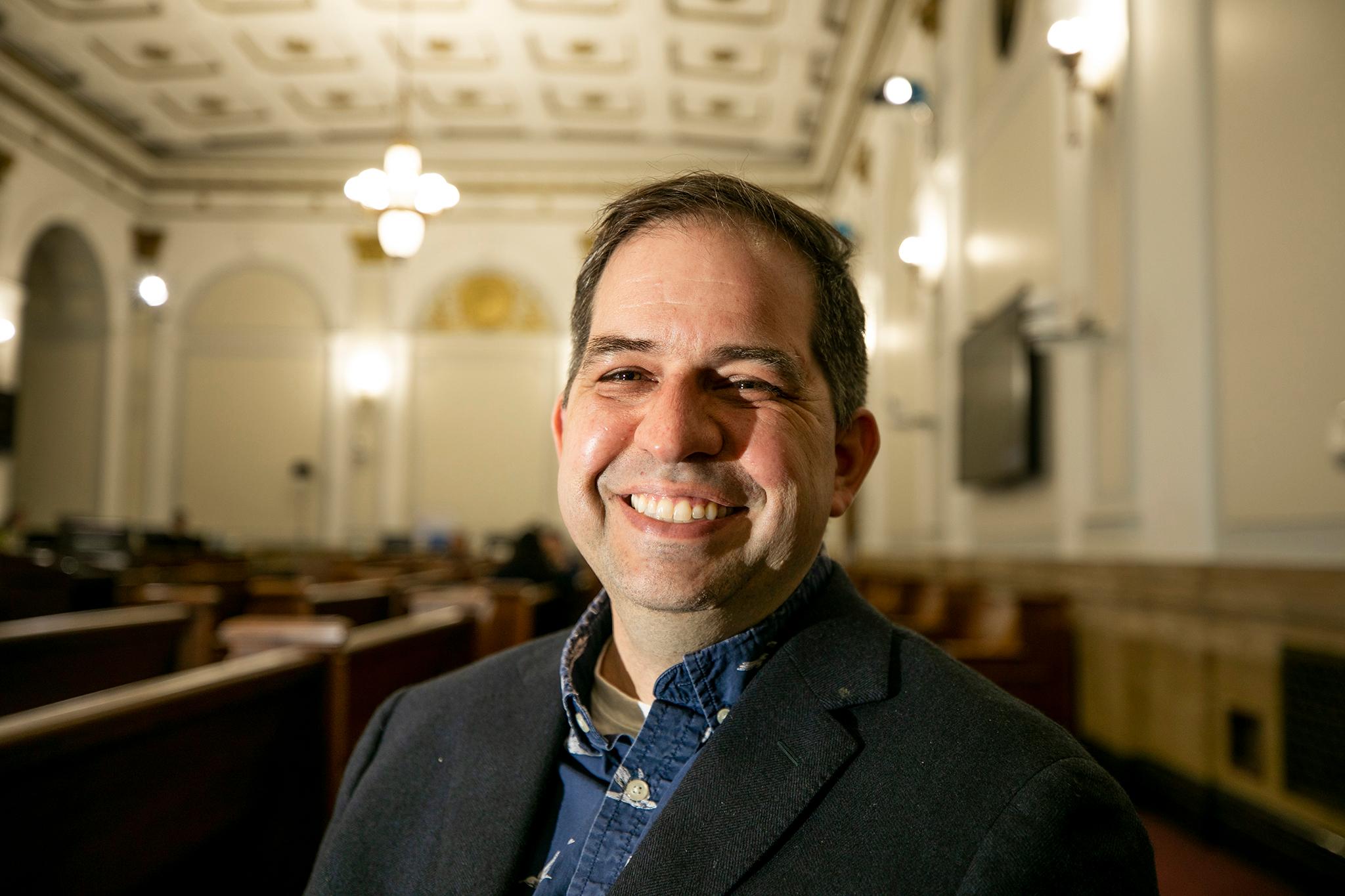When incumbent Councilmember Chris Hinds first upset former Councilmember Wayne New in the race for District 10 in 2019, Hinds said council chambers and bathrooms at City Hall were not yet wheelchair accessible. He was fresh off a state legislative win, with Governor John Hickenlooper signing the Chris Hinds Act into law a year before, expanding parking protections for people with disabilities.
"I said, 'Well, geez, if they're going to start naming laws after me as a private citizen, imagine what I could do as an elected official," Hinds said.
With a background in computer science and finance, Hinds said he never expected to get into politics. But after a 2008 bike crash led to a spinal cord injury that put him in a wheelchair, Hinds began advocating for disability rights. Now, he's running for reelection in District 10, against Noah Kaplan, Shannon Hoffman and Margie Morris.
Hinds is looking to represent both his neighborhoods and the disability community.
He's said himself that there are plenty of white men in power, but that there's a historic lack of elected officials with disabilities. "I believe our democracy is stronger when it's representative of all the people," he said.
It's something that's come up in the race already -- earlier this month, Hinds made national news for speaking out against a debate venue that was not wheelchair accessible, requiring him to attempt to crawl on stage while organizers scrambled to find solutions.
One of his goals is to make the city more wheelchair accessible, something that Hinds said will improve transportation for all Denverites.
"If I, in a wheelchair, can get from A to B safely, and someone with a vision impairment can, then anyone can," he said. "In many ways, having one perspective of access helps everyone in our city get around better."
For him, this also looks like making Denver less reliant on cars, especially since he represents parts of downtown. Hinds said it's not just good for safety, accessibility and the environment, but also for community.
"If we're as a community going from our locked homes, to our locked cars to our locked offices, then we're not creating that special fabric that is Denver," he said.
In his past term, Hinds is proud of Council's work on minimum wage and affordable housing.
Housing and affordability remain key issues in the city, and in this year's election. Hinds said the most important thing he worked on in his last term was co-sponsoring a bill to raise the city's minimum wage from $15.87 to $17.29, led by at-large Councilmember Robin Kniech.
"[It's] still not a living wage, but we're getting closer to making sure that people can make ends meet in Denver," he said.
On housing, Hinds pointed to his yes-vote on the Expanding Housing Affordability policy, which requires developers to include a certain percentage of income-restricted units in new multifamily projects.
Hinds also said he's glad Council expanded the Support Team Assisted Response program (STAR), which sends paramedics and mental health clinicians to nonviolent calls in place of police, and that the city opened a new jail diversion center to connect people with social services.
Looking to a potential second term, Hinds wants to work on pedestrian and cyclist infrastructure and homelessness.
He wants to push forward work on the 5280 trail, a pedestrian and cyclist trail through the city proposed in 2019. In Hinds' ideal world, that trail would connect to citywide shared streets, a pandemic-era program shutting down local streets to through-traffic that city officials are working to bring back permanently.
On homelessness, Hinds wants the city to continue buying motels to convert into non-congregate housing for people in need. Looking back on the past few years, Hinds said purchases like those are good first steps, and that he wants to continue the work.
"I think we're doing some really good stuff in the city and I would love to have the opportunity to return to effect more change on behalf of everyone in Denver," he said.













